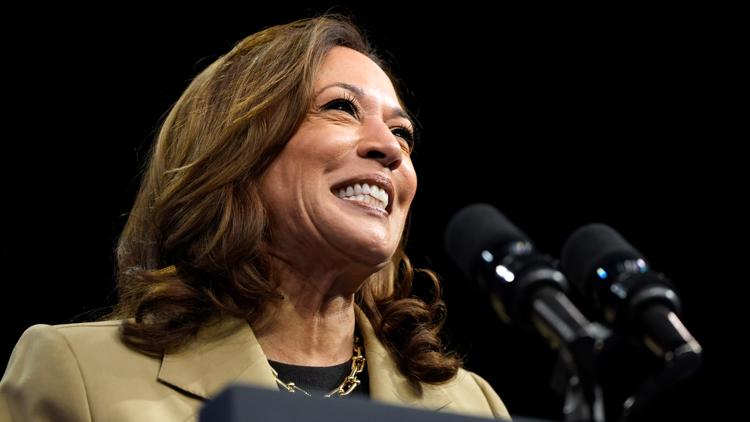How Kamala Harris is Winning Over Mormon Voters in Arizona

In the battleground state of Arizona, Vice President Kamala Harris is ramping up her efforts to secure the support of voters who belong to the Church of Jesus Christ of Latter-day Saints. This move comes as part of her strategy to show that Donald Trump does not align with the values of the Mormon faith.
Her state campaign recently announced an advisory committee aimed at reaching out to both current and former members of the church, also known as the Mormon church in Arizona. With nearly 450,000 church members in the state, comprising about 6% of the population, these voters could play a crucial role in what is expected to be a tightly contested race.
While Latter-day Saints have traditionally supported Republican candidates, Harris is making a concerted effort to chip away at Trump’s base. In the 2020 election, around 70% of Mormon voters nationally backed Trump, but Harris is looking to appeal to a portion of this demographic in Arizona.
One of the key strategies employed by Harris is highlighting the importance of the U.S. Constitution, which is seen as divinely inspired by the Mormon faith. Former Republican state lawmaker Joel John, who will co-chair the advisory committee, emphasized the need to elect politicians who embody moral traits like honesty and wisdom, qualities that he believes Trump lacks.
Trump’s abrasive language and controversial rhetoric have not resonated well with many members of the Mormon faith, who prioritize values like humility, morality, and compassion. His strained relationships with prominent Mormons like Senator Mitt Romney and former Senator Jeff Flake have further alienated some members of the church.
In Arizona, Mormons play a significant role in politics, particularly in metro Phoenix’s East Valley, where they have helped shift the state from reliably Republican to a battleground. Harris’ outreach efforts to Latter-day Saints are not new, with previous Democratic candidates making similar appeals based on shared values and concerns.
As Harris looks to make inroads with Mormon voters in Arizona, she faces the challenge of overcoming the strong social expectation within the faith to align with conservative values. However, younger Latter-day Saints, who are more diverse and open to considering a wider range of political viewpoints, present a promising opportunity for Harris.
By focusing on shared values and emphasizing the importance of moral leadership, Harris is making a compelling case to Mormon voters in Arizona. As the state gears up for another close election, the support of this influential demographic could prove to be a decisive factor in the outcome.




